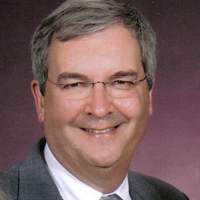
Growing up during the depths of the Great Depression was grueling on just about anyone. If you were part of a large family of tobacco sharecroppers in rural eastern North Carolina, the hardships were multiplied many times over.
When young Richard was 6 years old, World War II had begun, so life truly never got any better. Somehow, even with the required farm work, he managed to get a good education and received a full scholarship to study at the University of North Carolina. About the same time his father and mother divorced, and Richard elected to enlist in the U.S. Navy and just get away from home.
Enlisting in the military wasn’t easy. A childhood injury had left Richard blind in one eye — but he was cunning enough, when asked to cover his right eye with his hand, to leave a small crack in his fingers to peep through. He passed the test, and was in the Navy!
The Korean conflict was still being fought, and Richard became a pilot of a landing craft, a boat that ferried soldiers from the ships to the beaches. On one trip a misfired cannon from a battleship hit near his craft, bursting his eardrums.
Now totally deaf, Richard was transported to the Philippines for surgery and hopeful recovery. Hearing returned to one ear, but not the other.
Most servicemen with one eye and one ear would have left the military and drawn their disability, but Richard was different. Many papers of commendation from his superiors, including Vice Admiral John McCain, father of current Sen. John McCain, lauded Richard as “dedicated,” “prompt,” “intelligent,” “reliable,” and a “treasure for the U. S. Navy.”
He remained with the Navy up to the Vietnam War and then retired. He had found his bride, and it was time to settle down.
His second career began in Charlotte with a pharmaceutical company. There he became father to a son, and attended college at night — driving 60 miles one way — to get that once-passed-over college degree. In four years he graduated as the class valedictorian. His job ended at the pharmaceutical company and ended as he was beginning graduate studies, and his small family moved to his wife’s farm in rural Scotland County.
He was back to his roots on a rural farm, although he was 150 miles from his original home. His “yard” grew to a 5-acre garden, in which he and family raised food for their family and friends.
His son, Chris, recalled the trips to turkey farms where they shoveled manure for hours to use as their fertilizer. The stench was unbearable, but the agricultural yield was phenomenal.
Later a position as a magistrate opened at the Scotland County Courthouse, and Richard became one of many applicants. Perhaps it was his worldly education, his intelligence, or his mater-of-fact attitude, but he not only got the position, but judges doing the interviews included letters of high recommendation.
As a magistrate, Richard defined himself as exemplary to most. He was a maverick, and in some ways a throwback to the old west. The stories shared by law enforcement officers of their encounters with Richard would leave anyone crying in laughter.
One officer recalled bringing in a violent suspect with another officer. The suspect had to be restrained after damaging chairs and a table and carried off to jail. Upon returning to the magistrate’s courtroom, the officers began cleaning up and apologized for the destroyed furniture.
In response, Richard looked at them and responded: “That was darn good police work!”
Another recalled the suspect who pulled a knife on Richard, only to have Richard draw his .45 and reply: “Don’t ever bring a knife to a gun fight!”
Another suspect was told to talk loud as Richard was partly deaf. The suspect shouted loudly at which Richard put his finger in his ear: “Thirty days!”
If Richard had a flaw, it came from being raised on a tobacco farm and smacking tobacco since he was 10 years old: two packs a day! Yes, even North Carolina now has laws against smoking in public places and the magistrate’s courtroom even has a “No Smoking” sign behind his bench.
As one suspect was brought in, Richard was smoking a cigarette, and the suspect asked if he could borrow one.
“Can’t you read? This is a NON-SMOKING building!”
Of course, he also had a heart — a big one — for some first offenders, engaging many in fatherly conversations that appeared to touch their hearts and minds.
Richard earned the respect of everyone within the legal system, including the defense attorneys. His decisions were nearly always swift and fair.
Many officers would wait hours with their suspect in their car, or if possible, holding them at their office until the red pickup truck arrived shortly before 11 p.m. Richard had earned their confidence as supportive, swift, and fair.
He chose to have the “graveyard” shift from 11 p.m. to 7 a.m. for a good reason: he wanted to be able to have the daylight hours for his wife and son.
His family was his priority. Gardening and fishing were reserved for those times, but like most parents, their only child, Chris, was their pride and joy.
Chris learned well. He graduated from college and law school, worked with the District Attorney’s office, and is now a District Court judge. Together, Chris and his wife have a daughter who became another “apple” in Richard’s eye.
Richard Rhue finished his course on earth on June 8.
One day his granddaughter will hear and read about her grandfather that she knew only briefly. It is then that her rich heritage will be clearly revealed.
Beacham McDougald can be reached at [email protected].

